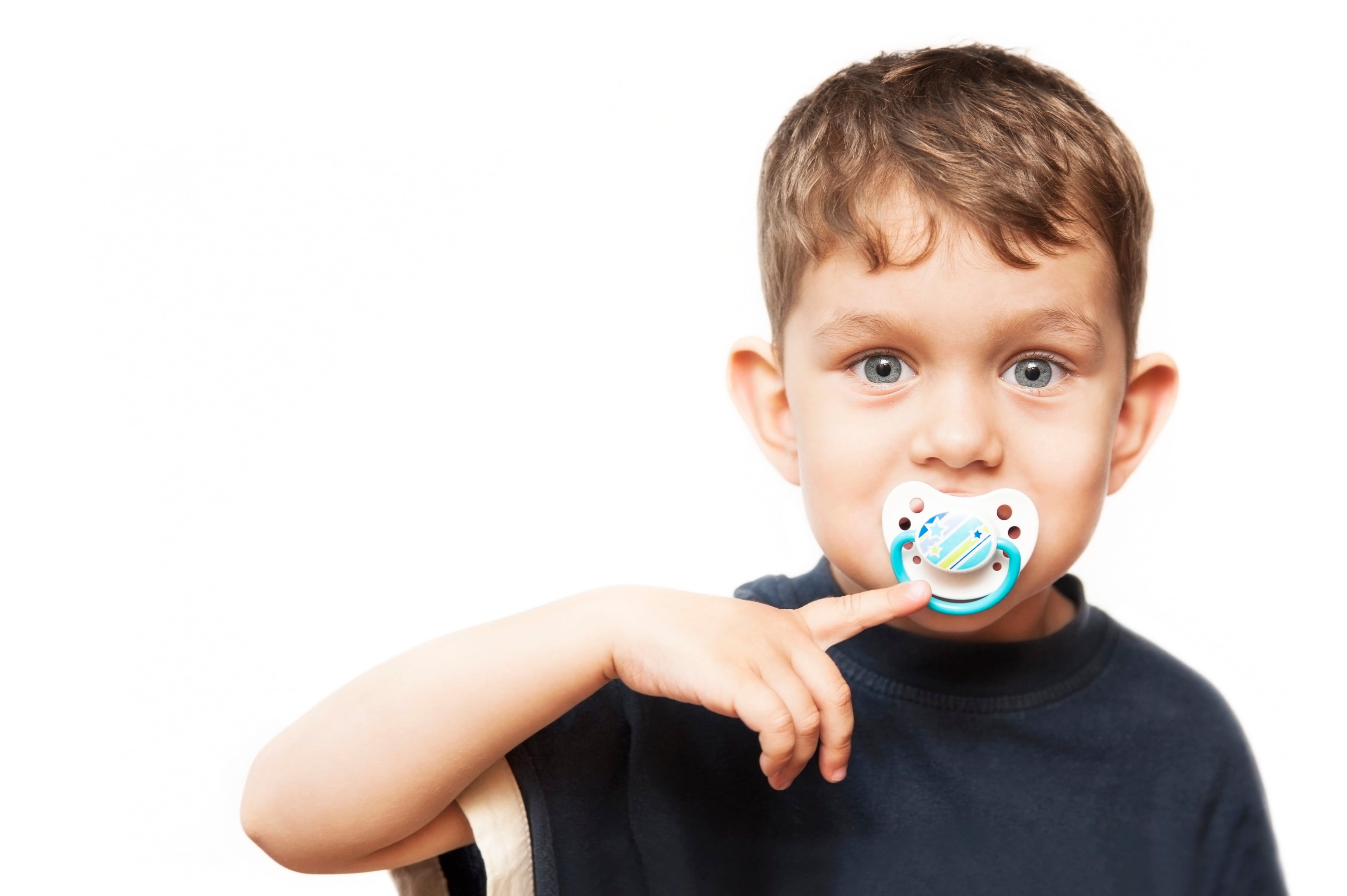The Perils of Long Time Pacifier Use and Thumb-Sucking

There was a great sense of comfort that came to us in the form of a pacifier, when we were children, but if our use of pacifiers or thumb-sucking continued past age 3, it could cause problems. These sucking habits are a natural thing we do related to our instinct to nurse, but parents need to help their children break this habit before it becomes an issue and produces long-term dental health problems.
At What Age Should My Child Break The Sucking Habit?
At first there’s nothing to concern about, as we mentioned the sucking instinct is natural and healthy, and the comfort it brings to the child is as well. However, once the child starts developing teeth it’s time to slow down the habit, and it should be completely broken by age 3. If your child hasn’t broken their sucking habit by age 3 it may be time to speak to your dentist to get help in protecting your child’s long term oral health.
What Happens If My Child Keeps Sucking Their Thumb Or Using A Pacifier?
In all cases there are going to be oral health repercussions, most commonly misalignment of the front teeth due to the pressure placed on them during sucking. The severity of the issue depends on the nature of the child’s habit, the more aggressive they are the more damage they’ll do. So if your child passively rests their thumb or pacifier in their mouth, it’s going to do less damage then if they’re actively sucking the pacifier. Additionally, thumbs are always worse than pacifiers in terms of damage dealt.
What Can I Do To Help Break Them Of Their Thumb Or Pacifier?
While you may be tempting to scold your children for their habit, or to tease them to try to help break them of it, both of these measures are counterproductive. Instead what they need is loving support and praise to help them break the habit for good, shame and scolding only lead to them hiding the behavior. What you can do to help your children can be found below:
- Security – Ensure that your child’s environment is warm, supportive, and as stable as possible.
- Praise Them – Encouragement can go a long way, so if you see them sucking less, say so.
- Cooperation – Older children can be a partner in the quitting process, so get them involved.
- Professional Help – There are certain medications that can be applied to help stubborn children quit.
If these steps prove themselves to be insufficient then you can consider other options for helping break the habit. Simple steps include things like putting a bandage or sock over the preferred thumb, or putting certain bitter medication on the thumb that your dentist has available that will deter sucking. The long-term dental health repercussions from an uncontrolled habit can be expensive or permanent, so don’t wait!
If you need help breaking your child of the habit then contact Smiling Kids Dentistry in Noblesville, IN and make an appointment with Dr. Sam Bullard today!

